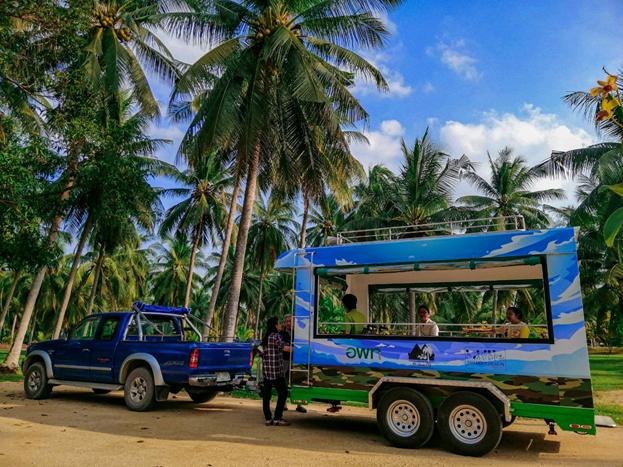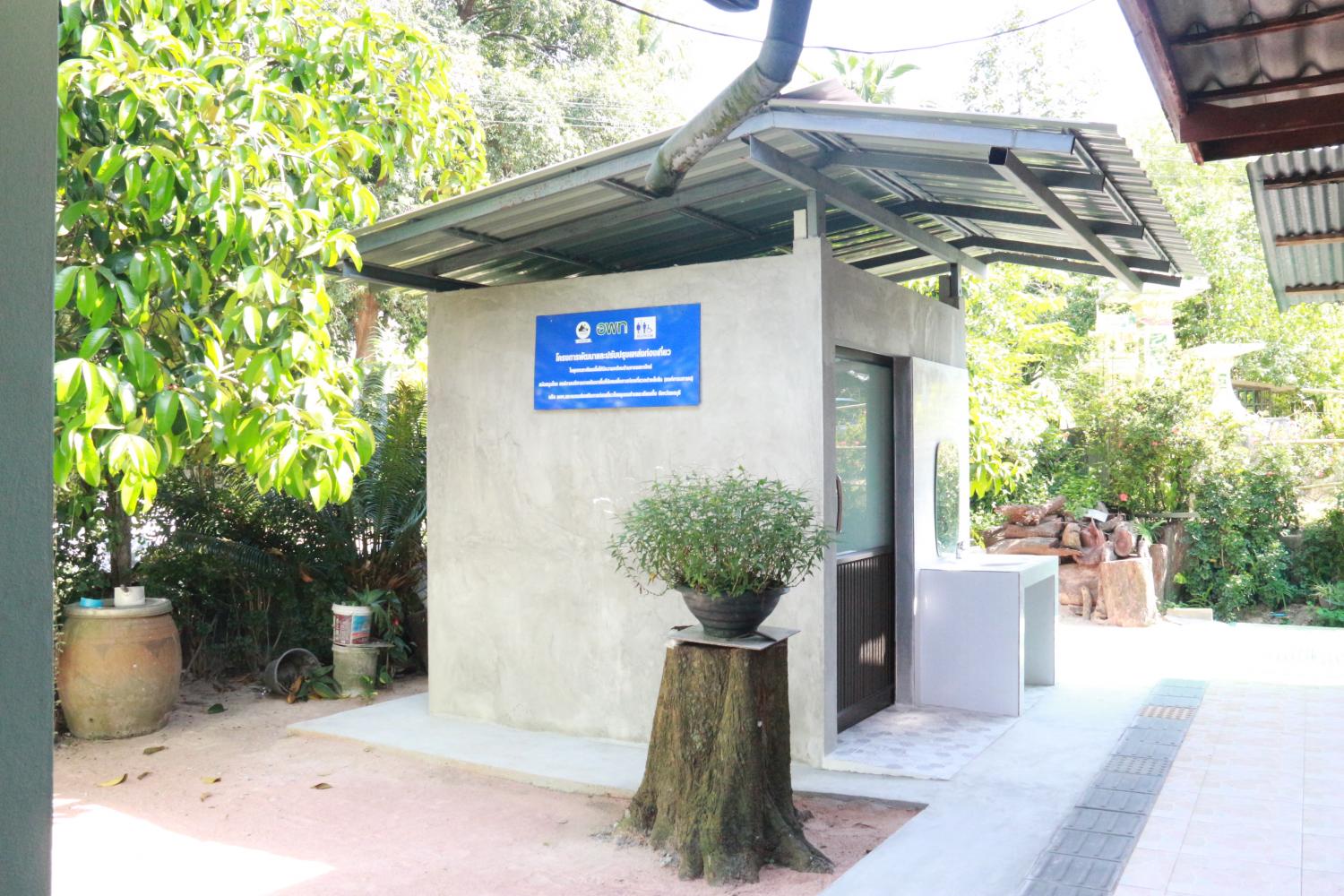
Accessible tourism needs to be a consideration as the industry tries to become more resilient after the pandemic, according to the World Tourism Organization.
Roughly 10% of the world population is over age 65, while about 16% have some form of disability.
As the Thai economy becomes more dependent on tourism, infrastructure development to become more accessible in both the public and private sectors has increased.
While there are some accessibility laws related to buildings and the national development plan, operators and tourists believe there is more to be done to protect disabled people's quality of life.
DISABLED TRAVELLERS
"I believe every disabled person wants to travel," said Phattharabhandhu Krissana, vice-president of the Association of the Physically Handicapped of Thailand and an executive committee member of Disabilities Thailand.
As a wheelchair user after a car accident more than 30 years ago, Mr Phattharabhandhu recalled his own experiences when visiting places abroad, as well as Thailand's natural parks, dams and facilities offering camping and rafting.
"If I just sat and waited for those attractions to adapt to me, I wouldn't be able to travel at all," he said.
"I need to plan ahead of time, preparing my own helpers and personal equipment."
One issue is a lack of assistive infrastructure in public places. For example, it is impossible to visit street food stalls alongside roads or rivers because of space limitations and lack of ramps, said Mr Phattharabhandhu.
In terms of transport, although Bangkok provides some public buses and facilities with ramps, these services are not widely available in other tourist cities such as Chiang Mai, Phuket and Pattaya.
In many cases, supporting devices are poorly constructed, including ramps that are too steep and guiding blocks that lead to obstacles, even though the concept of accessibility has been spread via disability advocacy for 20 years, he said.

HIGH-VALUE OPPORTUNITY
Disabled tourists are a segment known for high travel expenditures.
A study on accessible tourism in Europe in 2015 showed the group spent 1.16 times more than an average tourist.
Long-haul disabled tourists should be considered an opportunity for Thailand because they have high travel demand and stable personal finances, said Jittasak Putjorn, an assistant professor at Silpakorn University who is conducting research into the development of Thailand as a "Tourism For All" destination.
By 2025, Mr Jittasak estimated disabled tourists from Europe will contribute €88.6 billion, while those travelling with two additional people such as friends and family members will generate more than €266 billion.
Katemanee Sankhamping, who runs a private tour company for the elderly and wheelchair users in Chiang Mai named "Health and Care Thai Tours", said her customers mainly come from Europe, followed by a small number from Hong Kong and mainland China.
Mrs Katemanee said customers are willing to pay for quality services while visiting attractions in Thailand.
Tour prices are 10% higher than other packages because of extensive service and accessibility equipment expenses.
She said the key to success in this segment is having professional tour guides who know which type of itinerary is safe, as well as treating customers with care and safety.

UNIVERSAL DESIGN
Landscape architects play an important role in designing physical appearances and usage for visitors of all ages and needs, whether that is footpaths, convention centres or public parks.
"I believe the universal design and inclusivity concept has been engraved in all architects' mindsets," said Namchai Saensupha, president of the Thai Association of Landscape Architects.
Mr Namchai said he noticed increasing demand from both private and public developers to add inclusive features in their projects, following changes to building laws that mandate minimum requirements for accessibility.
By incorporating universal design and inclusive features, private developers can add value to their projects, allowing them to apply for international certifications such as the WELL Building standard, he said.
Examples of new public projects with inclusivity aspects include Benjakitti Park, owned by the Treasury Department, and Silom Footpath, under the Bangkok Metropolitan Administration (BMA).
The Designated Areas for Sustainable Tourism Administration (Dasta) also includes universal design requirements in its tourism development plan.
Sutarak Sunthornviphart, managing director of Dasta Area 3 Pattaya and Connecting Area, said its highlights are community tourism sites: Takiantia village and Chak Ngaew Chinese market.
Both were co-invested by locals and Dasta from 2018 to 2020, and equipped with accessible ramps and toilets.
These two destinations form part of the "Tourism For All" route in Chon Buri, certified by Thailand's Friendly Design For All Foundation.
At Takiantia village, the community provides a sightseeing bus that can accommodate six wheelchair users.
Mr Sutarak said Dasta also trained operators in the area and provided them with a universal design guidebook, encouraging hotels and attractions to adjust their properties.
Other public and private projects in Dasta Area 3 that have been upgraded include Bali Hai Pier and Nong Nooch Garden.
Dasta plans to develop Ban Amphoe in Sattahip as a beachside destination that can be included on the "Top 100 Green Destination" list within four years, utilising the tourism for all concept in development, he said.

FEWER WORKING BARRIERS
Despite public awareness about the importance of accessible infrastructure in cities, Thailand is not thought of as a handicap-friendly nation, with unwalkable footpaths and low-quality crosswalks.
Mr Namchai said one factor is inadequate governmental resources and rules that prevent professional designers from working on such projects.
For example, the BMA has only a few landscape architects who have professional expertise in designing accessible environments for the public, compared with the large number of engineers, he said.
In addition, the government sector usually restricts outsourcing conditions, which favour bidders who offer to do the job for the lowest price, resulting in lower-quality projects, said Mr Namchai.
Unfeasible fees for private designers, often around 2% of construction costs, also discourage quality designers from bidding for jobs, as they are used to 8-10% of construction costs, he said.
To fix low-quality footpaths around Bangkok, Mr Namchai said there should be a middleman to collaborate with related authorities, as public facilities have different authorities involved, dealing with electricity poles, telephone lines and trees.
Thailand needs a long-term vision for the public sector that prioritises quality over budgets and allows more private professionals to participate, he said.
Dasta also has a low budget allocation and limited authorisation, said Mr Sutarak.
He said if Dasta could lead tourism operators rather than just being a coordinator, it could push through more accessible projects.
CONNECTING SELLERS AND TOURISTS
Tourism operators said accessible tourism still needs a core platform to link buyers and sellers in order to boost Thailand's competitiveness.
As an operator in Chiang Mai, Mrs Katemanee said gaps in the tourism industry include the lack of a platform to help match operators like her with clients, especially domestic tourists.
"Many times, training sessions and seminars about the elderly and disabled tourism often end without any continuation or follow-up," she said.
Mr Jittasak said Thailand needs a national mechanism to connect all stakeholders in the supply chain, including disabled tourists, tour operators and tourism attractions.
For example, in his research he found many small operators scattered around Thailand in tourist destinations, growing organically without a strong business network to support them.
Mr Jittasak suggested the tourism minister be the project host, allocating budgets and collaborating with the Tourism Authority of Thailand and the Social Development and Human Security Ministry.
Workers in the tourism industry, such as hotel staff, labourers at attractions and tour guides, should be trained to assist disabled travellers, he said.
Mr Jittasak anticipates his research on Bangkok, Ayutthaya, Sukhothai, Chiang Mai, Phetchaburi and Prachuap Khiri Khan should help to decide the potential for this segment by 2025, as well as determine the existing supply in the country, which could lead to suggestions for future development policies.
Disabled users can test these policies in preparation for marketing at global trade events, he said.
Mr Phattharabhandhu said the government should establish a digital platform, compiling necessary tourism information for disabled people, including interesting routes and how to travel from airports to cities.
He urged the government to set up a committee to supervise this agenda, where representatives from both the public and private sectors could initiate action plans for infrastructure development.
In addition, Mr Phattharabhandhu suggested authorities work with neighbourhoods to create pilot zoning areas amenable for disabled tourists, rather than making structures like hotels or malls do the job alone.
He said there could be tourism hubs like the old town of Bangkok near Wat Phra Kaew, or a transport and medical hub such as Victory Monument with nearby hospitals and government organisations, where there are already a lot of disabled users.







